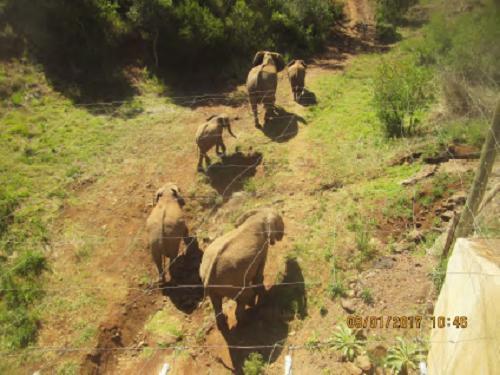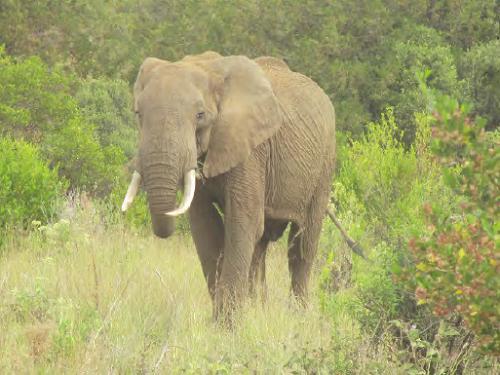Susie Weeks
The Mount Kenya Trust, in consultation with the Kenya Wildlife Service and Kisima Farm, has set up a horse patrol team to monitor wildlife populations and prevent illegal forest activities (such as illegal logging) on the mountain. The mounted team is the first of its kind on Mount Kenya, using Ethiopian ponies, a very hardy African breed ideally suited for high altitude conditions and rough terrain. The team was established in 2011 and begun fully operational patrols during the first quarter of 2012. The Trust has employed five men from the local communities and will engage at least three KWS rangers were seconded to be trained alongside the MKT recruits.

Family moving safely through underpass.
This project enhances the capacity of law enforcement personnel to decrease the level of poaching and other illegal activities mainly but not limited to the north-western section of the Mountain. Focus is placed on those specific areas most urgently in need of intervention (problem human-wildlife conflict areas areas, poaching prone incident and degraded forested areas). The team also undertakes randomized and discriminatory patrols continuously on a 50hr weekly schedule. A supervisor attached to this and 2 other MKT teams in the area assists the team with logistical support and helps them communicate needs for reinforcements from other KWS units as well as Lewa and Kisima security if and when the situation requires.

The main conservation challenge is poaching (particularly the killing of elephants for ivory and smaller mammals for bushmeat and hides), the mitigation of human wildlife conflict arising from the insularisation of wildlife in the National Park and Reserve and the ever-increasing human populations in the immediate environs adjoining the protected area. There are also serious threats to wildlife habitats and the forest as a major water catchment and other vital ecosystem services to the country as a whole. These include illegal logging of trees, forest excisions, marijuana cultivation, illegal food crop cultivation, fires and illegal grazing.
Poaching for bush-meat on Mount Kenya has been a problem for many years but there is an added layer of threat to wildlife populations and elephants in particular due to the increasing prices and demand for ivory in South East Asia and China in particular which has led to an unprecedented killing of elephants on the mountain since 2009. The team have already had several successes in apprehending and passing on information to armed patrol units which are limited due to a lack of resources availed to the Kenya Wildlife Service given the size, importance and threats to the Mount Kenya ecosystem as a whole.